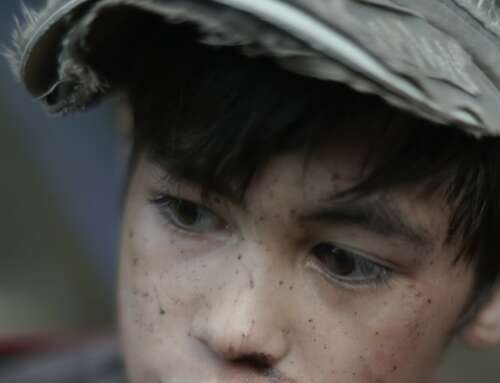The Invictus Games has highlighted the plight of veterans who are dealing with post-traumatic stress disorder (PTSD). But how does it impact their families and children?
Veteran and co-founder of Soldier On, John Bale, said while the veteran community had become much more open about PTSD, families were still suffering from associated anxiety and depression in silence.
“That can have dramatic impacts on both that family unit, but also intergenerationally with the kids of that family, and their kids et cetera,” Mr Bale said.
He has had personal experience with this.
Mr Bale’s grandfather served, and his father is a Vietnam veteran who fought at one of the worst battles — the Battle of Coral.
“He didn’t talk about that with me. Not really until the last couple of years did he say he had PTSD from that incident,” Mr Bale said.
“As a family we knew it occurred, but at the end of the day we didn’t talk about it as a family.”
He believes his father’s PTSD has, in part, been passed down to him.
“I think it’s unrealistic to say no,” Mr Bale said.
“I’ve worked through some of the ways I deal with highly stressful situations, where sometimes I’m quick to anger in certain instances.
“When I sit somewhere, I have good vision across everywhere I can see.
“That’s part of that — not hyper-vigilance that my father has passed down — but what I saw him do in sitting in the back of a bus and seeing where the exits are and that sort of thing.
“I had to work through that in an emotional element.
“Now with children of my own and understanding the interactions I am having, I am having to re-learn some of those skills.”
Experience changes DNA
The Department of Veterans Affairs provides some information and guidance about intergenerational trauma for veterans and their families.
It refers to an Australian Institute of Health and Welfare study from almost 20 years ago, which found adult children of Vietnam veterans had a higher suicide rate than other Australians.
Emerging research suggests this link might be more than the result of environmental factors and nurture, and could be passed down via what’s called epigenetics.
This is where environmental factors change the way the DNA behaves in the parent (father and mother), and that is passed down to the child.
“As well as transmitting the DNA sequence in genes from the parents, we think now — and this is pretty new research — that the experience of the mother and the father can be transmitted via what we call epigenetics to the offspring,” Anthony Hannan, the head of epigenetics at the Florey Institute of Neuroscience and Mental Health, said.
“And that can contribute to either the susceptibility or vulnerability to particular brain disorders, including PTSD.”
– Katherine Gregory, ABC News
Read more: Can PTSD Be Passed Down to Kids? Emerging Research Looks at Intergenerational Trauma
Image Source: Pixabay







Leave A Comment